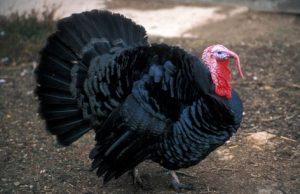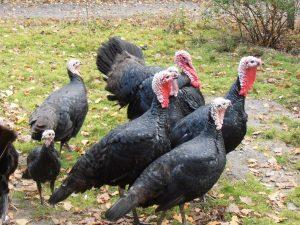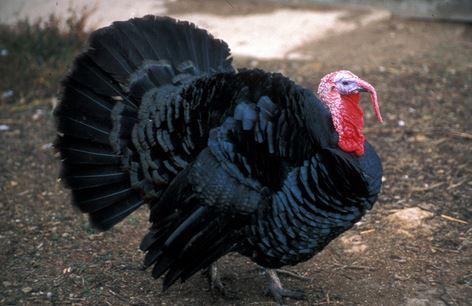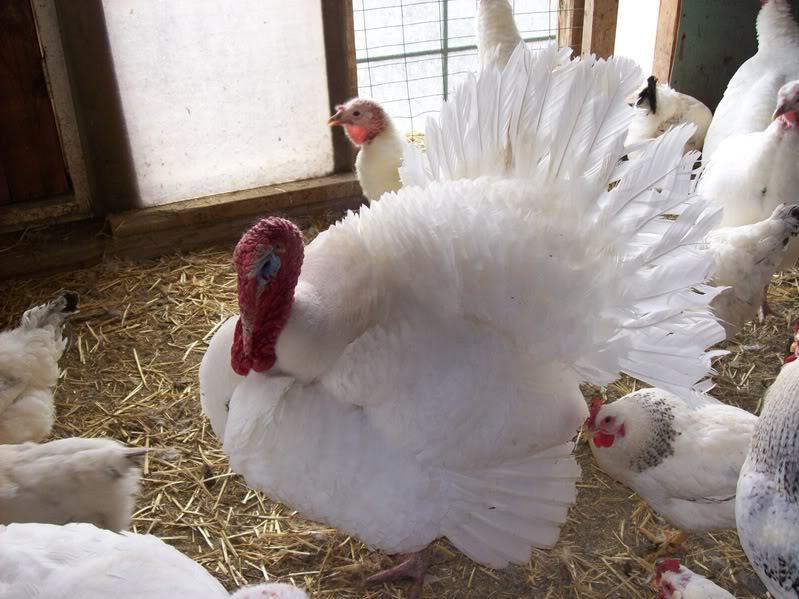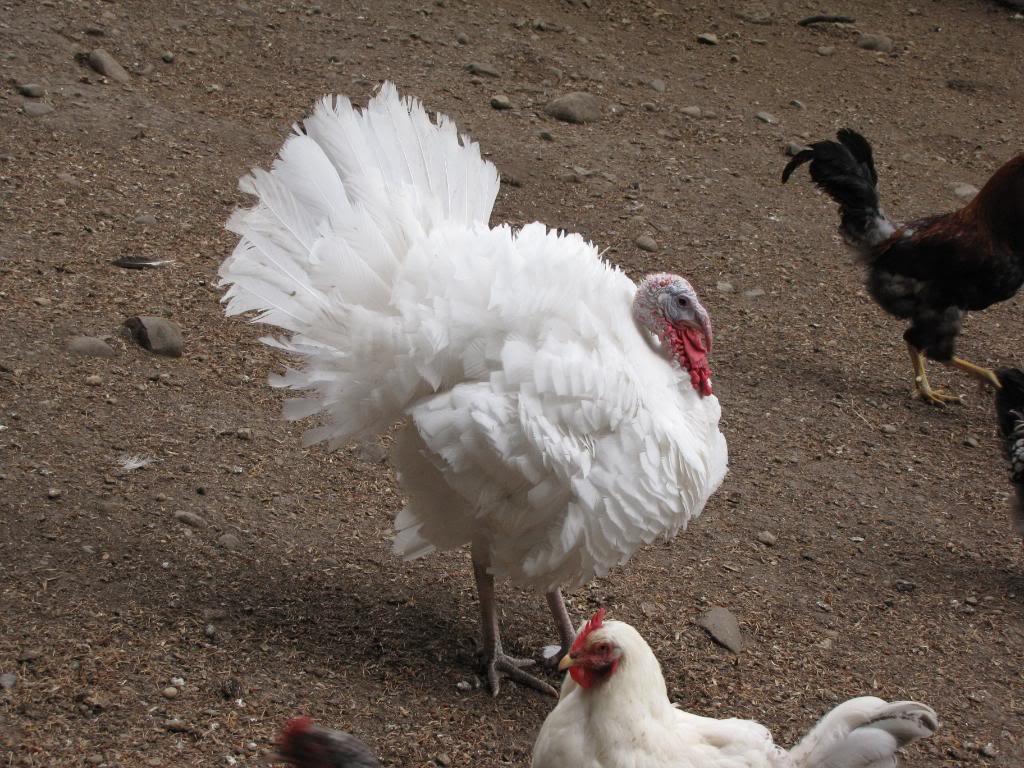Gers Turkey (Dindon du Gers)
The Gers Turkey is an ancient breed of black turkeys that was developed in France. This breed is very rare and is threatened with extinction. They are the heaviest of all the French turkeys, and are known for their elegant, beautiful looks.
| Characteristics | Large to medium-sized birds with a strong head, broad and bare structure, and a large bib; the frontal appendix is well developed, while the beak is dark colored |
| Plumage | Entirely black feathers with light tan reflection and bronze, brown and green tone at the back; tail feathers have bronze tones which are seen only when the toms display |
| Beard | Extra long; Resembles an old-fashioned curly wig, with the dulap being red and the wattle milky pink |
| Temperament | Docile, easy to tame |
| Purposes | Meat (previously), ornamental purposes |
| Popular Traits | Hardy; very resistant and can stay outdoors in extreme weather conditions including rains and snow |
| Flying | Yes (short distances) |
| Eggs | Large; white to pale white |
| Meat Production | 7-13 kilos (market live-weight) |
| Diet | Fruits, breads, chicken pellets, all types of grains, and plants like nettles; they also prefer live foods like insects, and also mice and young rats; domestic chicks are often fed with eggs, buttermilk and mealworms |
| Size | Adult Tom: 10-13 kg Adult Hen: 7-8 kg |
| Status | Endangered |
| Country of Origin | Gers Department, France |
History
Nothing much is known about the history or specific origin of this breed. However, these black turkeys, like most other black breeds, are thought to have been brought to France by the Jesuits during the early 16th century, and were spread by the nobility and the church. It got its name from where it originated – the Gers region (‘department’) in France, located in the Pyrenees mountain range.
Interesting Facts
- When a tom turkey gets excited, its face turns cyan or sky blue.
- The hen turkeys are exceptionally caring and would even take care of the poults of other hens.
- Adults have a huge appetite, and might even die because of overfeeding.


